Memoirs & Diaries - The Circus
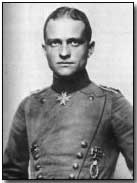 By the side of a cottage in
an insignificant French village one morning in the spring of 1918, a group
of khaki-clad figures stood gazing intently at a sheet of foolscap bearing a
few typewritten names.
By the side of a cottage in
an insignificant French village one morning in the spring of 1918, a group
of khaki-clad figures stood gazing intently at a sheet of foolscap bearing a
few typewritten names.
By the cap and cut of the jacket, these lads, none of them more than nineteen years and all just from England, could be seen to belong to the Flying Corps, and they were eagerly scanning the newest list of postings.
One of them, by hurrying out from his billet immediately after breakfast, had been the first there, and although he had been at the Pilots' Pool only two days, it was with intense satisfaction that he read:
To X Squadron.
Lieutenant S.
Lieutenant. K.
"X seems to be having a thin time; that's ten new pilots in a week," a voice remarked. "Heaven help those two poor devils. They've got the 'Circus' on their front."
For a moment Lieutenant S. felt a tinge of dread; he had heard much of the "Circus" of forty picked fighters, led by the redoubtable Richthofen, and here was he - a mere child in matters of aerial warfare - to be pitted against the best pilots of the German Flying Corps.
About eleven o'clock that evening a tender came for the two "unfortunates", and after a chilling ride which brought them ever nearer to the sound of big guns and a sky perpetually bright with their flashes, S. arrived at his squadron in the blackness of night that preceded dawn.
War seemed far away when a few hours later, looking out from the tent flap, he found himself in a little wood where a bright sun made the dew on the green leaf-buds glisten and revealed patches of violets among the moss. The sight of these flowers brought to his mind a vivid picture of Sussex woods and an English girl. It was her favourite flower!
 At the end of a fortnight
he was told to be ready to be one of three for a two hours' "show" over the
lines. As he gazed up at the blue sky, broken from time to time by
drifting clouds, which the enemy well knew how to use as a hiding place, the
young officer pondered over his first outing.
At the end of a fortnight
he was told to be ready to be one of three for a two hours' "show" over the
lines. As he gazed up at the blue sky, broken from time to time by
drifting clouds, which the enemy well knew how to use as a hiding place, the
young officer pondered over his first outing.
There was his "bus", a scout which needed delicate handling, and instruments which required occasional watching. He must keep a wary eye all round and at the same time look out for landmarks; he must also keep his place in formation, and an eye on the leader's plane for the "waggle" which should tell of hostile aircraft.
Once up aloft, all apprehension left him and the clear spring air acted as a tonic. The sense of adventure became uppermost. In a close triangle the machines climbed to gain height before crossing into enemy territory, and after an hour's flying the planes of the front machine rocked.
Enemy! Another waggle, more violent! He looked in front... behind... above... and then over the side he saw them.
A few hundred feet below cloud vapours were drifting across the sky and as the machines circled above a gap in the golden mist he could see an old R.E. 8 lumbering along with three "tripes" buzzing round like hornets.
Only the "Circus" flew triplanes, and here were three of them, their variegated colours turned into gold by the brilliance of the sun, playing about with one of the slowest machines then on the Front. Why didn't his leader dive into them and give him a chance of using his guns on a live target, instead of letting the unequal battle go on?
Suddenly across the sun shot some black specks, and a flight of Camels streamed down on to the scene below. There was a mix-up of red and blue circles and black crosses, and one machine went down in flames, but the three machines above flew straight on, and finished their patrol.
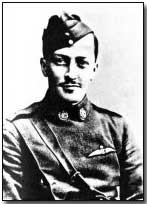 When they came down S.
asked the leader why he had not taken them into it, for they had been in a
good position and the numbers were even.
When they came down S.
asked the leader why he had not taken them into it, for they had been in a
good position and the numbers were even.
"Say, youngster, do you realize who they were? If we had mixed it, you would have been dead meat before now. They are not new hands! And I had seen our chaps - even if you hadn't!"
A few weeks afterwards he met the "Circus" again, not three of them, but the whole bunch.
For several days things had been quiet on the Front, and the absence of hostile planes, which was attributed to a threatened offensive against the French south of Moreuil, had engendered a greater boldness in our young flying lads.
Miles beyond the trenches they would fly, a few feet from the ground, bombing dumps and "shooting up" anything moving. There was no opposition whatever until a certain Sunday in mid-June when, at a height of 15,000 feet, three of them had ventured about eight miles into the enemy's territory.
The clear sky, the absence of noise beyond the hum of the engine, the apparent peace all round, made it seem really a day of rest. Once during the patrol S. had noticed about a mile away and 1,000 feet below a large flight of machines.
Since his arrival at the squadron he had learned how to identify all types of machines in the air, and now, with the momentary thought "Bristol Fighters", he dismissed them from his mind.
For a few minutes only!
Suddenly, without any preliminary waggle, the leader climbed sharply to the right. S., flying on the right corner of the triangle, climbed at an even steeper angle to keep formation, and what happened then was recorded as a series of blurred impressions.
As he turned, the air was filled with tracer bullets and before he was on an even keel his partner on the left burst into flames, fell, and went out. He had heard such happenings reported by others, but the quickness of it appalled him.
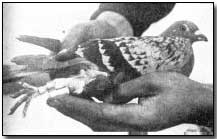 There was by now no sign of
his leader, and coming straight at him was the "Circus!" His mind, in a
flash, remarked the bizarre appearance of these triplanes with the sun
behind them; they resembled so many sets of empty bookshelves as they flew
at him, the first a blood-red one. Only Richthofen flew a blood-red
machine!
There was by now no sign of
his leader, and coming straight at him was the "Circus!" His mind, in a
flash, remarked the bizarre appearance of these triplanes with the sun
behind them; they resembled so many sets of empty bookshelves as they flew
at him, the first a blood-red one. Only Richthofen flew a blood-red
machine!
The air seemed alive with white-hot bullets passing over his head, beneath his wheels, and even between his planes. Instinctively he pressed his gun controls, there was no time to use telescopic sights. He blazed away in a vain effort to stop these flaming specks which were streaming past like fiery hail, and forgot that he had been told to fire always in short bursts.
His guns stopped-jammed; the "Circus" all round and he helpless at a height where the thin air made his controls slow to act. There was one thing he could do, dive - and the "tripes" could not dive steeply for long without a plane lifting off!
Pulling the joy-stick over to the right, he kicked the rudder bar hard with his right foot. Up and over came the nose of the little Camel, then down, down, engine full on. The pointer on his air-speed moved rapidly round 150, 170, 200, and still he kept his nose down.
Even as he had begun his dive he had seen four enemy machines dive out of the crowd and give chase. Could he go more steeply? He had heard of his own type of bus sometimes not coming out of a vertical dive.
By this time the rush of cold air would have cooled his guns, and he could scrap again, but one against four of Germany's best! A backward glance revealed the enemy beginning to flatten out and lose distance, so he himself flattened out. By the time he was out of the dive and had turned his machine back, only two of his attackers were at all near.
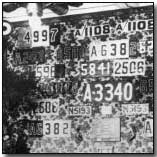 He climbed after them, but
instead of turning to fight they simply flew eastward. His own bus,
built more for rapid manoeuvring than for great speed, was gradually
outdistanced and all he could do was to fire a burst in farewell.
He climbed after them, but
instead of turning to fight they simply flew eastward. His own bus,
built more for rapid manoeuvring than for great speed, was gradually
outdistanced and all he could do was to fire a burst in farewell.
On his return home he found his flight leader awaiting him, unhurt.
"Gee, that was a warm two minutes", the captain said. "There were well over thirty of the blighters."
Two minutes! To S. it had seemed a lifetime.
July came in and was very hot, and, in that part of the Front, both on the ground and in the blue, there was great activity. No longer did our young pilots seek adventure in threes or sixes, a "squadron show" was now the rule.
Every evening at 7 the whole of the eighteen machines went up together, and as soon as they were high enough and formation was made, the three triangles, each of six machines, flew east in quest of trouble with the red sun behind them.
Nor did it take much looking for. Invariably about the hour of 8, the "Circus" was there, always waiting at the same spot, and a perfect formation dive soon developed into a "dog-fight".
It was then a case of every man for himself, singling out an enemy "bus", and sticking to it until one or the other went down or ammunition gave out. In the twilight of the evening our machines returned singly or in pairs; names were checked and the pilots gathered together by a hangar, looking out for those not yet in.
Soon all but one were back, and as long as light permitted them to discern anything moving in the sky, so long they stood there, cap, goggles, and gloves in hand, just as they had climbed out of the cockpit.
But something strange was happening, and as the days wore on a gloom settled upon the squadron. Every night with unfailing regularity one of the lads did not return, and this went on for the greater part of a fortnight. On no occasion had a Camel been seen to go down in flames or out of control.
In the excitement of a "dog-fight" this was to be expected, but there seemed something uncanny in the monotonous regularity with which just one failed to return.
A less buoyant air was to be noticed among the pilots on the 'drome and in the mess, and unconsciously everyone knew the unspoken question uppermost in every mind, "Whose turn to-night?" Something had to be done and quickly.
One evening during the middle of that month, the men in the trenches must have looked up when they heard the roar of more than fifty English scouts crossing over like three great arrowheads.
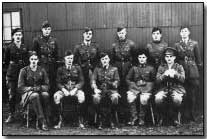 The
boys in those machines that evening were feeling "bucked", for that
self-same morning another squadron had met a section of the "Circus" and
satisfactorily disposed of ten of them.
The
boys in those machines that evening were feeling "bucked", for that
self-same morning another squadron had met a section of the "Circus" and
satisfactorily disposed of ten of them.
With this knowledge and no time to think of the nightly missing pilot, they sailed across to their evening tryst.
Of the scrap that followed, one of the largest ever seen over the lines, one vivid picture remains to S.
He is on the tail of a small, fast German scout, barely 100 feet away and, even while keeping an eye on it until he cannot fail to hit it, he is able to glimpse in the sky all round him countless specks of different sizes, wheeling, "split hairing", half-rolling, diving, at times spitting flame.
To his right and just above him there are five balls of fire falling earthwards, a moment ago swiftly moving machines guided by living minds. As he watches, flames lick out of the side of a bus not far away; in a fraction of time it is consumed with fire and hurtles down, leaving streaks of flame behind. No shrieks are heard, the comfortable hum of the engine removes any sign that a boy has gone to his death.
His own quarry is doing its level best to escape, but although actually faster, it is inferior at stunting, and the crowd of eighty odd specks makes straight flying impossible. Suddenly, during a short dive, the German pilot's neck fills the ring in his sight. S. presses his gun controls.
There is a short burst, a wisp of grey smoke, but before he can see the result the nose of his machine rises quickly and turns to the right. Why he never knew; he hears the rattle of machine guns, and, looking to his left, sees within a few feet a black bus with tiny white crosses on the upper plane streak past in a headlong dive.
The pilot's head is turned towards him so near that he would recognize him again. In a flash he pushes the joy-stick forward to the left, rudders in the same direction and dives after this new adversary. Comes another burst of bullets, more prolonged, and an S.E.5, in a vertical dive, shoots between them and separates them.
How he went into the fight, what else happened in it the flight home, have gone from memory.
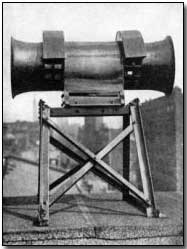 Back at the hangars, pilots
related individual experience and there was great satisfaction when it was
clear that the Camels alone, apart from the other two squadrons, had
accounted for eleven of the "Circus".
Back at the hangars, pilots
related individual experience and there was great satisfaction when it was
clear that the Camels alone, apart from the other two squadrons, had
accounted for eleven of the "Circus".
But no one had downed a red machine. That honour fell to Brown of 209 on the following Sunday morning.
On the evening of the same day S. saw the dead body of the famous German pilot.
As a doctor cut open the leather flying suit, Richthofen's underclothing was revealed - of the same blood-red colour as his triplane.
F. Suckling joined Army, April 1917, at eighteen years of age. Served in infantry training battalion for three months. Became an officer cadet in Royal Flying Corps. Received Commission in October 1917, and "wings" as flying officer in March 1918.
Went to France in April 1918, and served with 65 Squadron until October of the same year. From April to August 1918, engaged on the Somme front, chiefly against hostile fighting machines.
Did first "show" before nineteen years of age. August to October 1918, on the northern section of the front, chief duty being the escorting of bombing machines to Bruges and other Belgian towns.
Returned to England for brief period of Home service, during which time the Armistice was signed.
First published in Everyman at War (1930), edited by C. B. Purdom.
Photographs courtesy of Photos of the Great War website.
A Runner was a soldier who carried messages by hand.
- Did you know?
